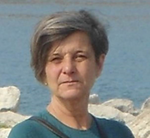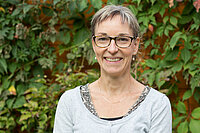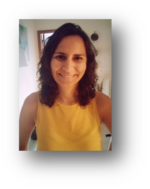Group 8
Comparative Group 8: Discussing the work of Adult Educators in Recognition of Prior Learning
Recognition of Prior Learning, adult educators, professional roles, professional activities
Prior Learning Recognition (RLP) was initially introduce in USA and Canada in order to broad access to higher education. Based on the idea of social justice, RPL aimed at giving a second chance to get a tertiary education degree to those who had no opportunity to enter higher education.
The last decades have seen a development in policies and practices for recognition of prior learning around the world. RPL has become an educational response to wide participation in education and training for economic development and social inclusion and strongly connected to discourses on lifelong learning. Validation of non-formal and informal learning became a key instrument of lifelong policies worldwide while the discourse on RPL shifted from social justice to economic development and employability.
The implementation of RPL is supported by adult educators with different professional roles who develop several kinds of activities. According to the countries and in some cases to the education and training sectors (HE, VET, training, adult education) we can find different staff arrangements involved in RPL: teams composed exclusively of RPL professionals; teams composed of several types of adult educators (RPL professionals, trainers, counsellors/advisors, and so on).
Comparaison of the RPL discourses and the members of staff engaged in validation of non-formal and informal learning will allow us to acknowledge the differences and the similarities of : RPL aims and discourses; the type of adult educators/RPL practitioners involved in this adult education policy and the activities they perform.
Comparative research question
- Which are the problems RPL pretend to tackle in different countries?
- Which are the RPL target groups and how are they define?
- Who is the staff involved in RPL (counsellors/advisors, RLP/validation professionals, trainers, external evaluators, and so on)?
- Which are the requirements to became a member of RPL staff (qualifications, experience, specific training)?
- Which are the activities performed by each member of RLP staff?
Context of comparison
According to the characteristics of each country, the contexts of comparison include concrete national/ regional RPL policies frameworks.
Role of Practitioners
Practitioners can focus on national/ regional aims and target groups of RPL; identify the professional roles of adult educators involved in RPL; and characterize their requirements and professional activities.
Categories of comparison
(selection for the transnational essay is based on participants research interests)
- The categories of comparison will include, but not limited to:
- Aims and target groups of RPL in each country
- Professional roles of adult educators involved in RPL
- Professional Activities of adult educators involved in RPL
- Requirements to became an adult educator involved in RPL
References
Andersson, P., Fejes, A., & Sandberg, F. (2013). Introducing research on recognition of prior learning. International Journal of Lifelong Education, 32(4), 405–411.
Travers, N., Harris, J (2014). Trends and issues in professional development of RPL practitioners. In J. Haris, C. Wihak, J.V. Kleef (Eds). Handbook of recognition of prior learning. Research into practice (pp. 233-258). Leicester: National Institute of Adult Continuing Learning.
Research voor Beleid (2010). Key competences for adult learning professionals. Contribution to the development of a reference framework of key competences for adult learning professionals. Final report. Research voor Beleid: Zoetermeer. Available at: http://www.ginconet.eu/sites/default/files/Key_Competences_For_Adult_Educators.pdf.

Prof. Natalia Alves, University of Lisbon, Portugal
Natália Alves is an assistant professor at Instituto de Educação, Universidade de Lisboa. She holds a PhD on Sociology of Education. Her main fields of research are school to work transitions and IVET and CVET policies, forms of provision and practices.
Prof. Dr. Sabine Schmidt-Lauff, Helmut Schmidt University Hamburg, Germany

Prof. Dr. Sabine Schmidt-Lauff has held the Professorship for Continuing Education and Lifelong Learning since September 2016. Her main research interest is in professionalisation and professionalism in adult education, professional identity, and international-comparative research on lifelong learning. Professional acting in adult and continuing education has been another key aspect of her work for several years. A special focus of her research and numerous national as well as international publications is on temporal and time-related challenges for learning throughout the whole lifespan in a globalised and virtualised modern world. From 2001-2004, she was head of one of the first pedagogical ERASMUS intensive programmes for adult education at Humboldt University Berlin (‘European Perspectives on Lifelong Learning and the Education of Adults’).

Co-moderation: Catarina Doutor, University of Lisbon, Portugal
Catarina Doutor is a PhD Student at the Institute of Education, University of Lisbon (Portugal). Her main research interest are the transitions to Higher Education, particularly the biographical learning ad identities of Portuguese-Speaking African Countries’ Students.


